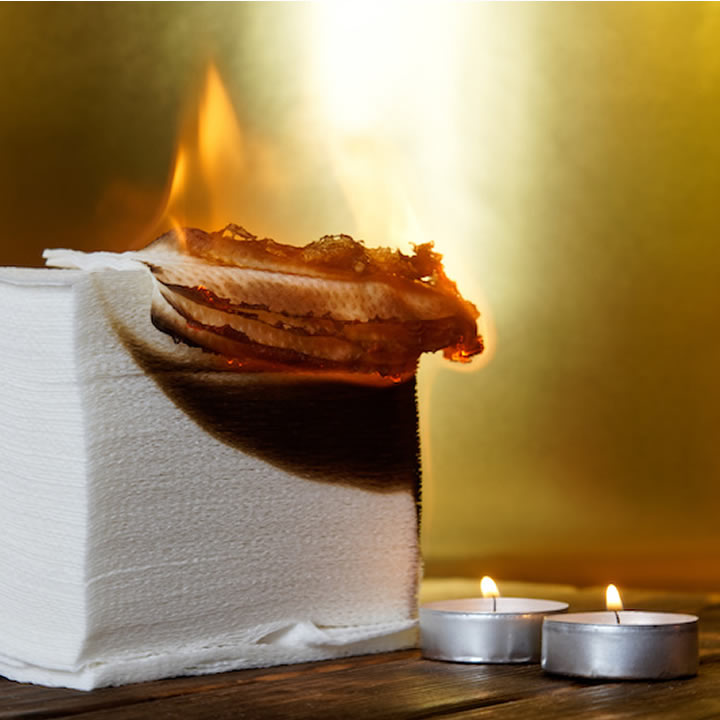If you do not have a smoke alarm (working, of course), in your house, you are approximately eight times more likely to die in a fire!
Fires in homes can be accidentally started in so many ways but the most commonly reported culprits are cooking, candles, cigarettes, faulty heaters, or heaters near combustible materials such as curtains, faulty electrical appliances, or overloaded sockets.
All of these reasons could easily be avoided so let’s think about how to do that.
Smoke Alarms: First and foremost, it is highly important to have working smoke alarms fitted. Ensuring the alarm is regularly tested, something which you can do yourself, is so important.
Usually, it is just a case of pressing and holding one button to test if the device is working. You will be greeted with the high-pitched scream of the alarm to let you know it is ready to protect you. London Fire Brigade, and likely others too, offer a free safety checker.
Cookers: Taking care to switch off the hob rings or gas when you have finished cooking is another preventative measure that can be easily taken. Make it a part of your food preparation routine to switch the burner off as soon as you move the pot away from the heat.
Gas leaks: Loosely linked to the point above, checking for gas leaks is a must. Often, gas leakage and carbon monoxide detectors are installed in the kitchen area, it is the area where gas is most often used.
Some smoke detectors also include carbon monoxide detection as a two-in-one safety device.
Smoking: Many house fires are caused by smoking.
The fires are often not caused by smoking itself, but by cigarettes left burning in ashtrays or too close to soft furnishings. An unattended cigarette left to smolder can slowly burn unnoticed and drop onto a sofa or catch a curtain, resulting in the materials quickly combusting.
Electrical Appliances: Checking that cables are not frayed and electrical items are working properly is another preventative measure that can be taken to avoid a fire in your home.
It is best not to leave higher voltage electrical appliances such as a tumble dryer, running while unsupervised. Such appliances could easily short-circuit and cause fire damage.
Aside from general electrical appliances mentioned above, it is important to take great care with freestanding electric and gas heaters so that they are not too close to soft furnishings. It is also important to ensure they are not left where a pet or child could topple them over.
It is also important not to overload sockets or use extension cables in a daisy chain formation.
Candles: If you must burn candles in your home, ensure they are sitting in a special bowl or candle plate which won’t easily burn if the candle tips or burns to the end. Burning candles at night is risky because you could fall asleep and leave the candle lit next to tables, paperwork, and any other combustible materials.
Take care that wood burners are used safely too – keep tools at arm’s length when adding fuel to the fire.
Deep Fat Fryers: Cooking hot oil is dangerous as it could very easily catch fire. Take care to ensure that food is not wet as it goes into the oil as it will prevent it from splashing. Hot oil will smoke and this is the cue to turn off the heat and let it cool a little.
Using a deep-fat fryer with a thermostat is a better idea as they cannot overheat.
Fire extinguishers: While they are seen less often in homes than in business premises, it is a good idea to invest in a fire extinguisher, especially, but not limited to, in the kitchen area.
While the points listed above are key to fire safety in the home, there are many other precautions that you can make to help prevent fires in the home.
After the Fire
If you are unlucky enough to be the person dealing with the aftermath of a fire, you are likely to need to seek help and advice from a trusted fire accident lawyer. The lawyers are equipped to deal with the heartache and fall-out following the absolute devastation of a fire.
The fire could be caused by issues that had been previously reported but not fixed in your rental by your landlord, or you could have tragically lost someone in a fire – either way, you will need the help of those who can advise you accordingly.

